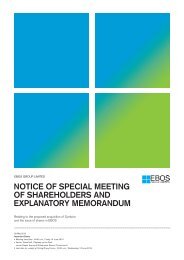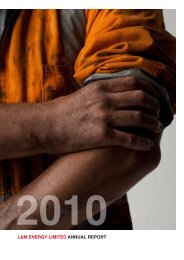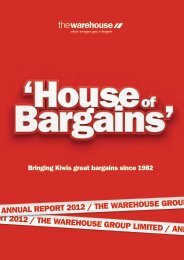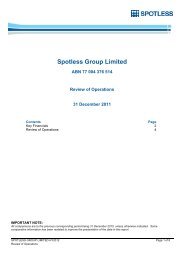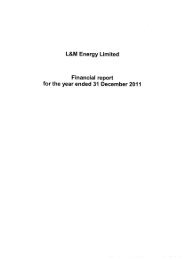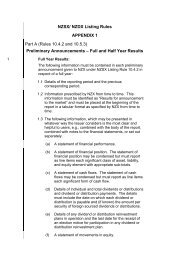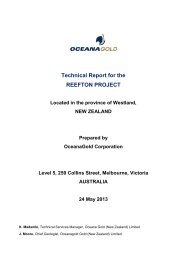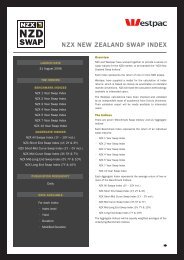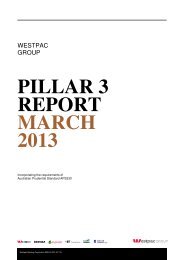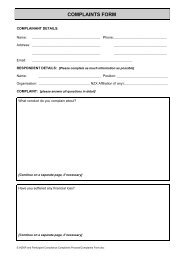Annual Report 2013 - Mainfreight
Annual Report 2013 - Mainfreight
Annual Report 2013 - Mainfreight
You also want an ePaper? Increase the reach of your titles
YUMPU automatically turns print PDFs into web optimized ePapers that Google loves.
2 Summary of Significant Accounting Policies (continued)<br />
(h) New Accounting Standards and Interpretations (continued)<br />
Reference Title Summary Application<br />
date of<br />
standard<br />
NZ IFRS 13<br />
Fair Value<br />
Measurement<br />
NZ IFRS 13 establishes a<br />
single source of guidance<br />
under NZ IFRS for determining<br />
the fair value of assets and<br />
liabilities. NZ IFRS 13 does<br />
not change when an entity is<br />
required to use fair value, but<br />
rather, provides guidance on<br />
how to determine fair value<br />
under NZ IFRS when fair value<br />
is required or permitted by<br />
NZ IFRS. Application of this<br />
guidance may result in different<br />
fair values being determined for<br />
the relevant assets. NZ IFRS<br />
13 also expands the disclosure<br />
requirements for all assets or<br />
liabilities carried at fair value.<br />
This includes information<br />
about the assumptions and<br />
the qualitative impact of those<br />
assumptions on the fair value<br />
determined.<br />
Impact on Group<br />
financial<br />
statements<br />
1 January <strong>2013</strong> The Group has not<br />
yet determined the<br />
effect, if any, on the<br />
Group Financial<br />
Statements.<br />
Application<br />
date for<br />
Group<br />
1 April <strong>2013</strong><br />
(i)<br />
Non-current Assets/Liabilities Held for Sale and Discontinued Operations<br />
Non-current assets and disposal groups are classified as held for sale and measured at the lower of their carrying amount and fair value<br />
less costs to sell if their carrying amount will be recovered principally through a sale transaction. They are not depreciated or amortised.<br />
For an asset or disposal group to be classified as held for sale, it must be available for immediate sale in its present condition and its<br />
sale must be highly probable.<br />
An impairment loss is recognised for any initial or subsequent write-down of the asset (or disposal group) to fair value less costs to sell.<br />
A gain is recognised for any subsequent increases in fair value less costs to sell of an asset (or disposal group), but not in excess of any<br />
cumulative impairment loss previously recognised. A gain or loss not previously recognised by the date of the sale of the non-current<br />
asset (or disposal group) is recognised at the date of de-recognition.<br />
A discontinued operation is a component of the entity that has been disposed of or is classified as held for sale and that represents<br />
a separate major line of business or geographical area of operations, is part of a single coordinated plan to dispose of such a line of<br />
business or area of operations, or is a subsidiary acquired exclusively with a view to resale. The results of discontinued operations are<br />
presented separately on the face of the income statement.<br />
Financial Statements<br />
75



